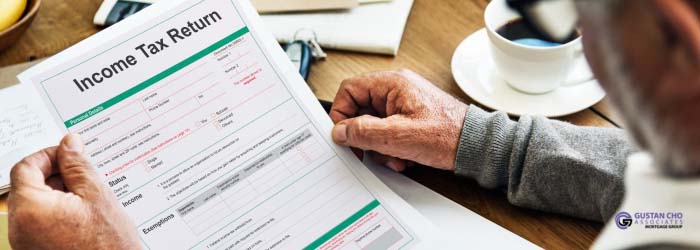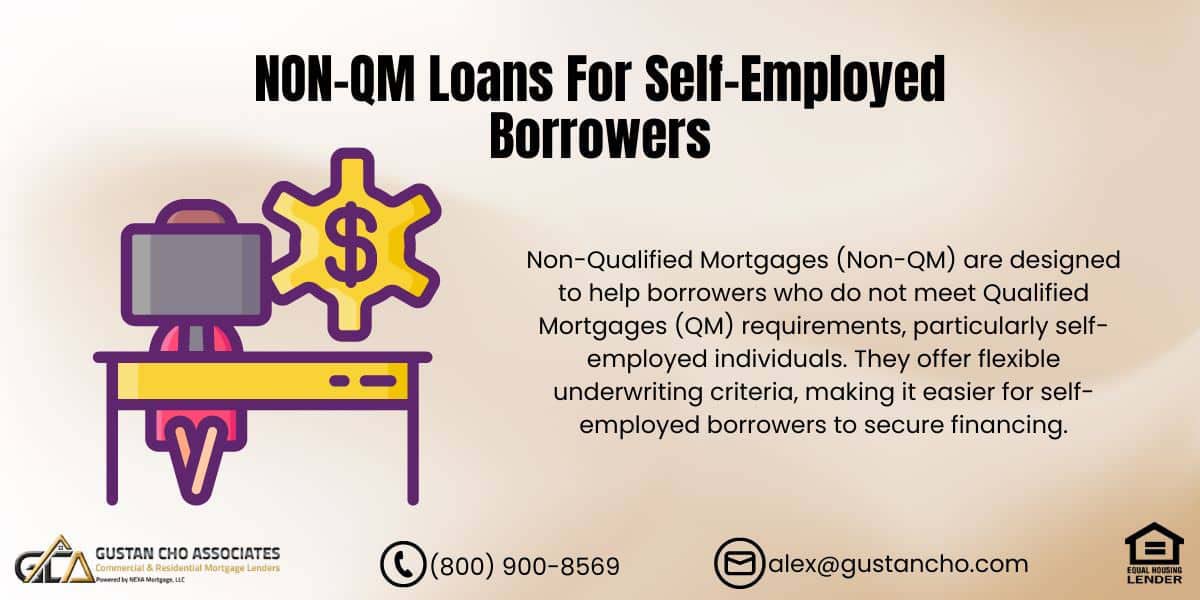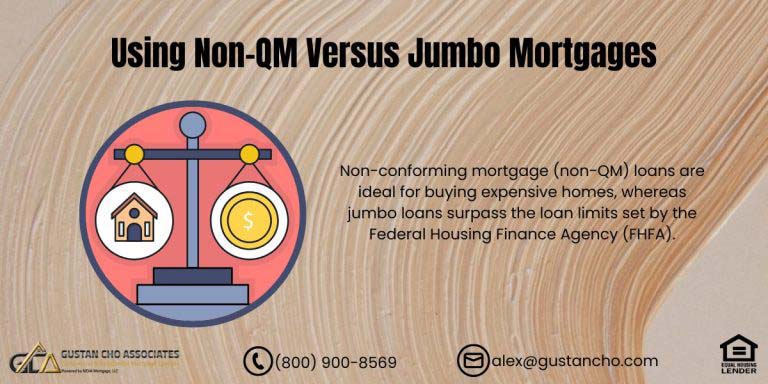How do Mortgage Underwriters Calculate Self-Employed Income?
Self-Employed and Looking for a Mortgage? NON-QM Loans Are Here to Help!
Reach out today to see how we can help you secure financing for your home.What Are Non-QM Loans For Self-Employed Borrowers
Non-Qualified Mortgages (Non-QM) are designed to help borrowers who do not meet Qualified Mortgages (QM) requirements, particularly self-employed individuals. Non-QM loans offer more flexible underwriting criteria, making it easier for self-employed borrowers to secure financing. Here’s an overview of Non-QM loans for self-employed borrowers, including their benefits, requirements, and considerations:Key Features of Non-QM Loans for Self-Employed Borrowers
Flexible Income Verification: Bank Statement Loans: Instead of traditional income documentation like tax returns, self-employed borrowers can use 12 to 24 months of personal or business bank statements to demonstrate their income. Profit and Loss Statements: Some lenders may accept profit and loss statements prepared by a certified public accountant (CPA) to verify income. Non-QM loans typically have more lenient credit score requirements than conventional loans. Borrowers with credit scores as low as 580 can sometimes qualify.Benefits for Self-Employed Borrowers
Easier Qualification: No Tax Returns Needed: Non-QM loans do not require tax returns, which can benefit self-employed borrowers with significant business expenses that reduce their taxable income. Diverse Options: Non-QM loans offer various term options, including fixed and adjustable-rate mortgages, to suit different financial situations and preferences. Higher Loan Amounts: Larger Loans: Non-QM loans can cater to borrowers needing larger loan amounts, often exceeding the conforming loan limits set by Fannie Mae and Freddie Mac.Considerations and Potential Drawbacks of Non-QM Loans For Self-Employed Borrowers
Higher Interest Rates: Risk Premium: Due to the increased risk associated with less stringent qualification criteria, non-QM loans often have higher interest rates than conventional loans. Larger Down Payments: Down Payment Requirements: Non-QM loans may require a larger down payment, often 20% or more, depending on the lender and the borrower’s overall financial profile. Limited Lender Availability: Specialized Lenders: Not all lenders offer non-QM loans. Borrowers may need to seek out specialized lenders who cater to this market.How to Qualify for a Non-QM Loan For Self-Employed Borrowers
Gather Documentation: Bank Statements: Prepare 12 to 24 months of personal or business bank statements to verify your income. Profit and Loss Statements: If applicable, have a CPA prepare profit and loss statements to present to lenders. A mortgage broker can help identify non-QM lenders and guide you through the application process, ensuring you meet all requirement. Credit Management: While Non-QM loans are more flexible, improving your credit score can help secure better terms and lower interest rates.How Are Debt-To-Income Ratios Calculated on Non-QM Loans For Self-Employed Borrowers
Case Scenario on How Underwriters Calculate Self-Employed Income
Until recently, with the introduction of NON-QM loans for self-employed borrowers, self-employed borrowers had difficulty qualifying for mortgages. Below is an example case scenario on how mortgage underwriters calculate self-employment income on traditional government and conventional loans. The underwriters will have to use the lower of the two years for borrowers with declining income. See below: Example 1– income in 2016 – $72,000- Income in 2017 – $60,000
- $60,000 / 12 months = $5,000 monthly income
- Income in 2017 = $72,000
- $60,000 + $72,000 = $132,000
- $132,000 / 24 months = $5500 monthly income
How Does NON-QM Loans For Self-Employed Borrowers Work
The good news is that NON-QM loans for self-employed borrowers are available for these borrowers. Borrowers can use a one-year average! The only catch is borrowers must use the most recent year’s tax return. These NON-QM loans do not allow for extensions to file taxes. For 2024, borrowers’ IRS returns must be filed before April 17. Filing for the extension is very common. But will not work for obtaining a mortgage in this case. For self-employed borrowers trying to obtain a mortgage, this program can increase their buying power. The borrower’s business must be in existence for two full years. This will be verified by a business license or with the Secretary of State. A complete 4506-T form will be needed to verify your tax returns with the IRS.Self-Employed and Ready to Buy a Home? Let’s Talk NON-QM Loans!
Contact us now to find out how we can help you secure the financing you deserve.What Do You Need To Qualify For Non-QM Loans For Self-Employed Borrowers
Owner Occupied and Second Homes:- 620 – 659 credit score requires a 15% down payment.
- 660 credit score or higher requires 10% down payment.
- 3 months reserves (minimum) (One Month Reserves is one month of PITI).
- 6 months reserves for 2nd homes.
- Seller concessions are allowed at 6%.
- 640 credit score or higher requires a 20% down payment.
- 680 credit score or higher requires a 15% down payment.
- Six months of reserves for investment properties.
- 2% seller concessions for investment properties.
How To Qualify For One-Year Tax Returns Non-QM Loans For Self-Employed Borrowers
The process to obtain this loan is very similar to any other mortgage loan. Borrowers will contact a mortgage loan officer at Gustan Cho Associates and provide the following:- Last 60 Days Bank Statements – to source down payment.
- Last Two Years’ Tax Returns (the only most recent year for income).
- Driver’s License.
- Home Owner’s Insurance Quote.
Lite Doc Non-QM Loans For Self-Employed Borrowers With Limited Docs Required
 Gustan Cho Associates offers the new Lite Doc Non-QM Mortgage Loan Program for borrowers with 720 FICO and 20% down and assets. Borrowers with at least 20% down payment with at least 20% down payment can qualify for the all-new Lite Doc Non-QM Loan Program. No tax returns are required. We can accept a P and L by a CPA, which will be sufficient. For more information, contact Gustan Cho Associates at 800-900-8569 or text us for faster response. Or email us at alex@gustancho.com.
Gustan Cho Associates offers the new Lite Doc Non-QM Mortgage Loan Program for borrowers with 720 FICO and 20% down and assets. Borrowers with at least 20% down payment with at least 20% down payment can qualify for the all-new Lite Doc Non-QM Loan Program. No tax returns are required. We can accept a P and L by a CPA, which will be sufficient. For more information, contact Gustan Cho Associates at 800-900-8569 or text us for faster response. Or email us at alex@gustancho.com.
Best Lenders For Non-QM Loans For Self-Employed Borrowers
Alex Carlucci is a senior loan officer with Gustan Cho Associates and a contributing editor for Gustan Cho Associates. Alex Carlucci is also The NON-QM Loan Expert at Gustan Cho Associates. Alex has originated and funded countless non-QM loans for self-employed borrowers.By exploring Non-QM loans, self-employed borrowers can find flexible financing solutions that accommodate their unique income structures, helping them achieve homeownership despite the limitations of traditional mortgage qualification criteria.Many of Alex Carlucci’s associates at Gustan Cho Associates go to Alex if they have questions about non-QM loans for self-employed borrowers. Alex Carlucci is available seven days a week, evenings, weekends, and holidays. Any questions on non-QM loans and bank statement mortgage loans for self-employed borrowers, call or text at (800) 900-8569. You can text, Alex for a faster response. Gustan Cho Associates team is available seven days a week, evenings, weekends, and holidays.
FAQs: NON-QM Loans For Self-Employed Borrowers
What are Non-QM Loans for Self-Employed Borrowers?
Non-Qualified Mortgages (Non-QM) are designed to help borrowers who do not meet Qualified Mortgages (QM) requirements, particularly self-employed individuals. They offer flexible underwriting criteria, making it easier for self-employed borrowers to secure financing.
How do Non-QM Loans Work for Self-Employed Borrowers?
Non-QM loans for self-employed borrowers do not require traditional income documentation like tax returns. Instead, lenders may use 12 to 24 months of personal or business bank statements or profit and loss statements prepared by a certified public accountant (CPA) to verify income.
What are the Key Features of Non-QM Loans for Self-Employed Borrowers?
Non-QM loans for self-employed borrowers offer flexible income verification, lenient credit score requirements, and various loan options, including larger loan amounts.
What are the Benefits of Non-QM Loans for Self-Employed Borrowers?
The benefits of non-QM loans for self-employed borrowers include not needing to provide tax returns, which is perfect for individuals with substantial business expenses that lower their taxable income. These loans offer easier qualification processes, flexible terms, and various loan options tailored to different financial situations. They can also accommodate higher loan amounts for those needing larger loans.
What are the Potential Drawbacks of Non-QM Loans for Self-Employed Borrowers?
For self-employed borrowers, non-QM loans come with potential drawbacks, including higher interest rates because of the increased risk compared to conventional loans. They often require larger down payments, typically 20% or more. Additionally, not all lenders offer non-QM loans, meaning borrowers may need to seek specialized lenders.
How are Debt-to-Income Ratios Calculated on Non-QM Loans for Self-Employed Borrowers?
Debt-to-income ratios for self-employed borrowers are calculated using a two-year average based on IRS tax returns. However, due to the variable nature of self-employment income, non-QM lenders may accept higher DTI ratios.
What Documentation is Needed to Qualify for a Non-QM Loan for Self-Employed Borrowers?
You must collect specific documentation to be eligible for a Non-QM loan as a self-employed borrower. This entails obtaining 12 to 24 months of personal or business bank statements and, if applicable, profit and loss statements prepared by a Certified Public Accountant (CPA). Additionally, proof of business existence for two full years is necessary. A 4506-T Form is also required to authenticate tax returns with the IRS.
What Credit Scores and Down Payments are Required for Non-QM Loans?
For non-QM loans, credit score and down payment requirements vary. Still, generally, a credit score of 620-659 requires a 15% down payment, while a credit score of 660 or higher demands a 10% down payment for owner-occupied and second homes. For investment properties, a credit score of 640 or higher requires a 20% down payment, and a credit score of 680 or higher allows for a 15% down payment. Reserves are also needed.
What is the Lite Doc Non-QM Loan Program?
The Lite Doc Non-QM Mortgage Loan Program is available for individuals with a FICO score of 720 and a down payment of 20%. Income verification can be done using a profit and loss statement prepared by a CPA, and tax returns are not required.
Who Can I Contact for More Information?
To apply and get more information, please get in touch with Alex Carlucci at Gustan Cho Associates by calling 800-900-8569 or emailing alex@gustancho.com. They provide complimentary individual consultations every day of the week.










